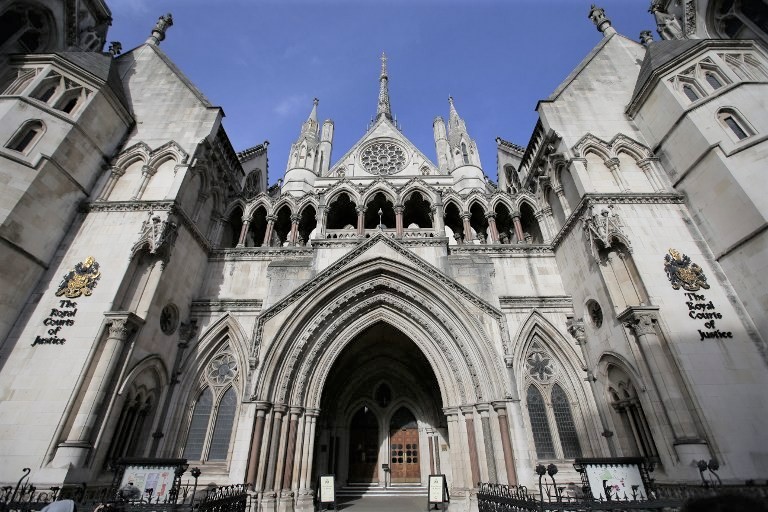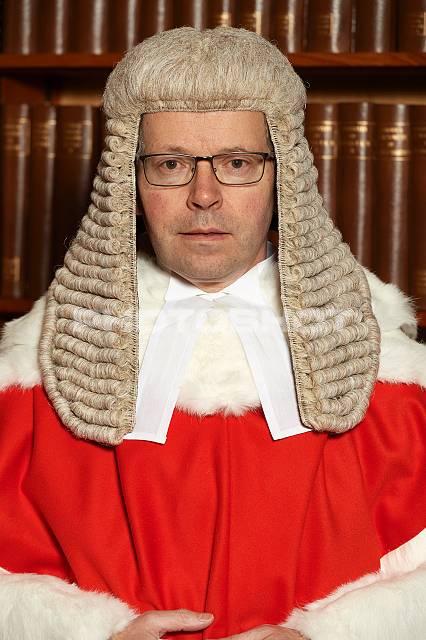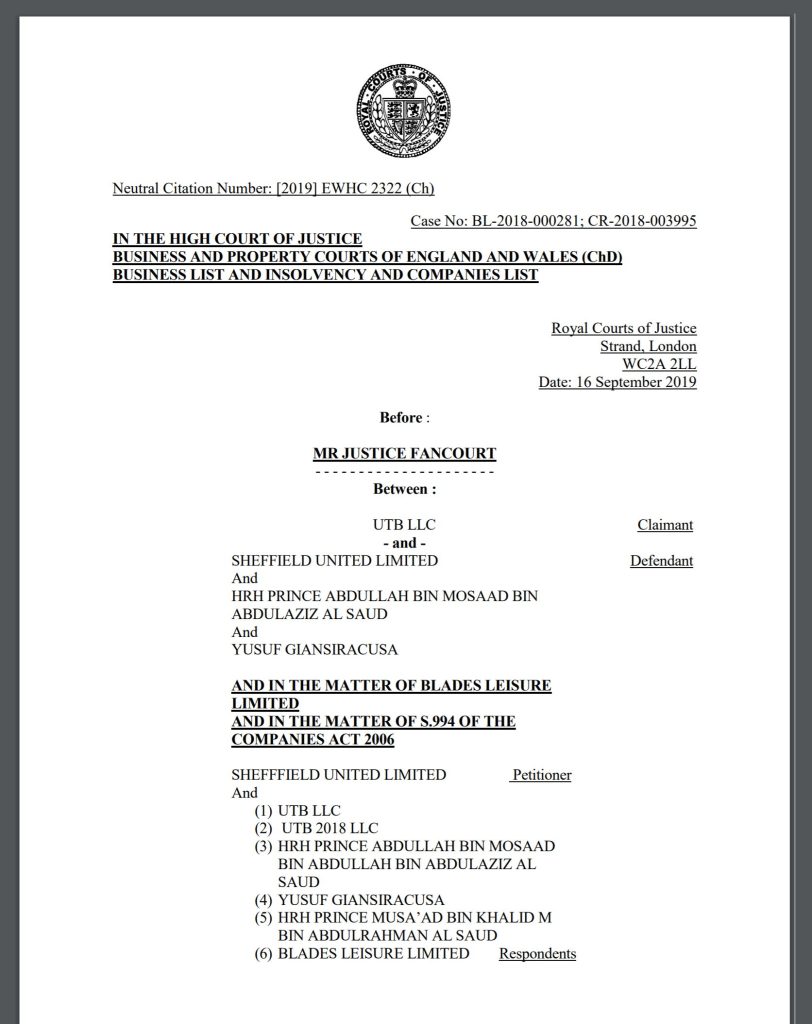

2666 WORDS

Photographer: Avalon.red
Date Created:01/15/2018
Location Information: none
Credit: © Avalon.red
يمكن الاطلاع على نص الحكم كاملاً من هذا الرابط
https://www.judiciary.uk/judgments/utb-llc-v-sheffield-united-others/
16 September 2019
Prince Abdullah bin Mosa’ad wins long-running shareholder dispute with Kevin McCabe over the ownership of Sheffield United Football Club
This morning, the English High Court handed down its judgment (the “Judgment”) in the dispute over the ownership of Sheffield United Football Club (the “Club”) between: (i) His Royal Highness Prince Abdullah bin Mosa’ad bin Abdulaziz Al Sa’ud and his company, UTB, LLC (“UTB”), and (ii) Mr Kevin McCabe and his company, Sheffield United Limited (“SUL”). Prior to the judgment, the parties owned the Club on a 50:50 basis through a holding company, Blades Leisure Limited (“Blades”). The Judgment follows a 19 day trial which took which place in May and June this year after a hotly contested court process which began more than 18 months ago.
Mr Justice Fancourt has found overwhelmingly in favour of Prince Abdullah and UTB and has determined that pursuant to the terms of a sale and purchase agreement entered into by the parties, SUL must transfer its 50% shareholding in Blades to UTB (para 537), giving Prince Abdullah full and sole control of the Club.
The Judge also comprehensively dismissed:
The Judgment runs to 262 pages and confirms UTB’s overwhelming success at trial. A summary of the findings reached by Mr Justice Fancourt is set out below, after a brief background to the litigation proceedings. Paragraph references are to the Judgment.
Background to the dispute
UTB and SUL have jointly owned the Club, through their holdings in Blades, since August 2013. At trial, Prince Abdullah and UTB were seeking to enforce a contract of sale and purchase which they argued required SUL to transfer its 50% shareholding in Blades to UTB for £5 million; a price set by Mr McCabe and SUL through their own attempts to “acquire UTB’s shares as cheaply as possible” (para 404). Mr McCabe and SUL argued that UTB had no right to enforce the contract and asked the Court to order instead that UTB should sell its shares to SUL on the basis that UTB had behaved in a manner which SUL argued had unfairly prejudiced SUL. All of the alleged behaviour took place before Mr McCabe and SUL initiated the purchase and sale process and was known to them. In short, Mr McCabe and SUL were seeking to use the courts to have a second bite at the apple because their initial scheme hadn’t worked as planned. Why? Money. Before the start of trial, SUL had found an American buyer (ALK) for the Club and had hoped to secure UTB’s shares so it could sell them on (together with its own shareholding) for a substantial profit. SUL also argued that it should be awarded damages running into many millions of pounds for breach of contract and for a conspiracy by UTB, Prince Abdullah and his fellow director of Blades and the Club (and lawyer), Mr Yusuf Giansiracusa, to harm SUL (para 5).
A number of the issues in dispute between UTB and SUL revolved around contrasting versions of events presented by the principal witnesses: Kevin McCabe and Prince Abdullah. Mr Justice Fancourt’s determination as to the credibility of their evidence, as well as the evidence of Mr Jeremy Tutton, who is Mr McCabe’s “trusted lieutenant” (para 297) and fellow director of Blades and the Club, and Mr Giansiracusa, was significant to the outcome of the trial.
- SUL’s additional claims for damages for breach of contract and for conspiracy to cause harm to SUL (para 538); and
- SUL’s serious but unfounded allegations that Prince Abdullah had been party to a bribe, which the Judge described as “fanciful” (para 479) and related to events which he described as not giving rise to “any perception of impropriety” (para 480).
Summary of key findings
In his careful and comprehensive judgment, Mr Justice Fancourt thoroughly analysed the arguments put forward by both sides. A summary of the Judge’s findings is as follows:
Breakdown in the relationship
Mr Justice Fancourt referred to it “not being clear” in 2013, when Prince Abdullah became a co-owner, how the Club would be funded after Prince Abdullah’s initial investment of £10 million had been fully utilised during the 2013/14 and 2014/15 seasons (para 288(i)). While Mr McCabe intended for UTB to take on the full funding of the Club and for SUL not to fund, Prince Abdullah believed that UTB and SUL would be providing needed capital in equal share (para 36). This led to a number of disagreements over funding between 2014-2018 and “spawned disagreements about several other matters” which came to a head in November 2017 (para 3). It was those matters which formed the substance of the proceedings and, once Mr McCabe realised that he would have to provide funding, his “attitude to the management of the Club” changed (para 188).
The “disputed events” in 2017 / allegations of conspiracy and unfair prejudice against UTB
The Judge concluded that SUL’s claims that: (i) it had been unfairly prejudiced by UTB’s conduct during 2017 such that UTB should be forced to sell its shares to SUL; and/or (ii) that UTB, Prince Abdullah and Mr Giansiracusa had conspired with a view to causing hurt, embarrassment and distress to Kevin McCabe so that the SUL/UTB relationship was destroyed entitling Mr McCabe and SUL to damages, lacked any merit. The Judge reached this conclusion principally based on his findings that:
- By May 2017, after a prospective deal that would have seen new investment from a third party into the Club had fallen through, Mr McCabe had determined that despite the Club being jointly owned by him and Prince Abdullah, he would “take de facto control”, “shake up the way that SUFC was run to suit SUL’s agenda, which meant no further investment from SUL and close control by Kevin McCabe” (para 329).
- By October 2017, Mr McCabe, while not even a director
of Blades or the Club at the time (para 340), was “determined to continue to
oppose Prince Abdullah on all fronts” (para 339) (with the exception (at
that stage) of the proposed appointment of Mr Jan van Winckel to the Club’s
technical committee). That included:
- Mr McCabe’s “plan to remove” Mr Stephen Bettis, the Club’s Chief Executive Officer (CEO) (para 327) from his post, against the wishes of UTB and the Club’s Board, as well as promoting the removal of some of UTB’s own appointed directors;
- his resistance to the appointment of the accounting firm, Deloitte, which Prince Abdullah wished to conduct an independent review of the Club’s financial performance (see para 331); and
- his opposition to the appointment of a new Chief Financial Officer (CFO) (para 338), notwithstanding that Mr McCabe had to accept that UTB were contractually entitled to appoint one (para 330).
- In relation to Mr Bettis, in late October 2017 Mr McCabe ultimately instructed Mr Andy Birks (a family friend of the McCabes who had been appointed as Chief Operating Officer (COO) at the Club earlier in 2017 and whose appointment was described by the Judge as “the means by which [Mr McCabe] was going to achieve [his] aim” to take control (para 239)), to remove Mr Bettis from the Club’s payroll despite knowing “full well” that Mr Bettis had not resigned as CEO and that the Board wanted to keep him. It was “done in a way calculated to ensure that UTB did not find out about it for some time” (para 342). In taking this action, Mr McCabe was found by Mr Justice Fancourt to have “wrongly decided to act unilaterally to try to force matters and tried to conceal this from everyone, including Mr Bettis himself”(para 343). The Judge went on to note, in dismissing SUL’s claim that UTB was wrong to reinstate Mr Bettis’ pay, that Prince Abdullah’s views on retaining Mr Bettis as CEO were “in the best interests of SUFC” and that his judgment “has been wholly vindicated by the success that Mr Bettis has subsequently enjoyed at the Club” (para 429).
- In relation to Deloitte and Mr van Winckel, Mr McCabe reneged on an “unambiguous” agreement reached at a meeting with Prince Abdullah on 1 November 2017 in relation to the appointment of Deloitte to review the Club’s financial affairs and Mr van Winckel as a consultant (para 345 ff.), which led to Prince Abdullah being “entirely justified in being offended by Mr Kevin McCabe’s behaviour”. That behaviour amounted to “deliberately operating behind Prince Abdullah’s back to try to subvert agreements that they had only just confirmed” (para 350).
- In relation to UTB’s right to appoint a CFO, Mr McCabe interfered in the terms of the appointment of Mr Simon Ratcliffe, “once more acting wrongly and in an underhand way”, “aided and abetted by Mr Tutton” (para 354).
- UTB did not damage the “relationship of trust” between UTB and SUL. Due to Mr McCabe’s actions, there was by late November 2017 “no trust and confidence left in the relationship, and SUL was determined to continue as it had previously, acting in its own interests and not collaboratively with UTB, with a view to selling out to ALK at a large profit” (para 363).
- Rather that conspiring to hurt or otherwise cause embarrassment to Mr McCabe as SUL had argued, Prince Abdullah and Mr Giansiracusa were determined only “to force Kevin McCabe to respect the constitutions of Blades and SUFC and act correctly through their boards and their appointed CEO” (para 370). There was no aim to “bully or intimidate Mr McCabe but to make him understand that his behaviour was unacceptable and bring him to heel” (para 370).
Allegation of bribery against Prince Abdullah
In a cynical attempt to gain litigation advantage and to use the courts to take control of the Club, SUL made a very serious but utterly unsubstantiated allegation that Prince Abdullah had accepted a bribe as part of attempts by SUL and UTB to find new investors in 2017, which SUL argued was unfairly prejudicial to its interests. This allegation was “pursued relentlessly” by SUL (para 448) with “no stone left unturned” (para 482), albeit the Judge noted in the Judgment that “despite the appearance likely to have been given to anyone watching in court”, whether Prince Abdullah was bribed was not as such an issue in the case (para 450).
The alleged bribe arose from a transaction which saw Blades (and indirectly the Club) secure a £3 million loan; an agreement which Mr McCabe and SUL were intimately involved in and which they were at the time “ecstatic” about (para 474) and came about as part of “good faith” attempts by Prince Abdullah to find a new investor, “with the backing of SUL – in order to benefit the Club” (para 483).
The Judge made the following findings:
- SUL’s case on the alleged bribe had materially changed during the course of the proceedings and even during the trial itself (para 441), and from the outset “the inference of bribery was made from rather slender factual foundations” (para 444). By the start of trial, the evidence was such that SUL’s allegations “based on supposition and Mr Tutton’s [fabricated] evidence” had fallen away and had morphed from bribery to some alternative case of alleged (as the Judge described it) “dubious dealings” (para 453).
- It is “abundantly clear” that the loan itself was “not a disguised gift at all” (para 461) and “the evidence is clear that this was an arm’s length transaction”, with “no question of UTB being treated favourably, or as a special case” (para 477), and “there was nothing surprising about the terms of the loan agreement” (para 473). Indeed, the agreement itself was negotiated by SUL (UTB and Prince Abdullah were not even involved (para 472)).
- The benefit that Prince Abdullah received from that loan (as an indirect shareholder in Blades – being the same benefit as that enjoyed by Mr McCabe), was “not one that by its nature calls out for an explanation or investigation” (para 479).
- Allegations of a potential conflict between Prince Abdullah’s interest and duty was “fanciful” (para 479) and the dealings at the centre of the allegations did not give rise to “any perception of impropriety” (para 480).
- Any prejudice to the Club has only arisen from the trial and “as a result of the press coverage of the revelation that Blades had borrowed money from the bin Laden family” (para 482); an issue which had been introduced into the proceedings and amplified to the Club’s detriment by SUL.
SUL’s witnesses
Mr Justice Fancourt found that Mr McCabe’s conductwas “manipulative and devious” (para 294) in respect of a number of the issues which gave rise to dispute (all of which were pursued in the litigation by SUL to supposedly highlight wrongdoing by Prince Abdullah and UTB) and that his evidence in places on key events was “disingenuous” (paras. 294, 329, 355).
Specifically, Mr Justice Fancourt:
- describes how Mr McCabe “Suborn[ed] Mr Birks into doing the dirty work” in removing Mr Bettis from the payroll, while at the same time “keeping Mr Bettis in the dark, while he did a month’s unpaid work before he discovered what had been done” (para 343);
- found Mr McCabe’s conduct in relation to the proposed appointment of Deloitte and Mr van Winckel to be “underhand and deliberately obstructive” (para 350);
- describes Mr McCabe’s willingness to “make use of SUFC employees to achieve his ends, thereby putting them in an invidious position” (para 354); and
- references Mr McCabe “characteristically .. blaming anyone but himself for what had gone wrong” (para 361).
While the Judge determined that it would be an exaggeration to say that Mr McCabe did not answer questions that he was asked, he “rarely answered questions directly” and the answers he did give “too often involved assertions that were patently at odds with the documents to which he was take, or implausible explanations for the difference” (para 292).
As Mr Justice Fancourt put it: “Kevin McCabe is only able to recall events or even look at documents through the prism of his own subjective beliefs and understanding of how things were, or how in his opinion they must have been, and his belief about who was in the right and who was wrong. There are numerous instances in which the account that he vigorously asserted and defended in the witness box was obviously wrong, or the opinion that he espoused was without any proper factual basis” (para 293). As a result, the Judge was unable to rely on his evidence about key events (para 294).
Mr Justice Fancourt also found Mr Tutton, a fellow of the Association of Chartered Certified Accountants, and Finance Director of SUL and its parent, The Scarborough Group International Limited, to be an unreliable witness (para 297), describing his performance in the witness box as “extraordinary” (para 296). The Judge specifically found that various key parts of Mr Tutton’s evidence were a “fabrication” (para 296).
UTB’s witnesses
Mr Justice Fancourt had no such concerns about UTB’s key witnesses, describing:
Prince Abdullah, UTB’s beneficial owner, as a “very intelligent man” and a “ reliable witness” (paras 302 and 305) who had become fired with enthusiasm and love for the Club (para 288 (iv)), and whose accounts of meetings with Mr McCabe were to be preferred to Mr McCabe’s (paras 305, 335); and
Mr Giansiracusa, Director of Blades and the Club, as “an intelligent, eloquent, careful and in my opinion truthful witness” (para 301).
Consequentials
A hearing dealing with consequential matters arising from the Judgment, including costs, will take place in October.
The full text of the judgment may be found at www. justice.gov.uk/__________.
UTB, LLC, Prince Abdullah and Mr Giansiracusa were represented by Jones Day in the proceedings, who instructed Mr Andreas Gledhill QC and Mr Tom Mountford. SUL were represented by Shepherd and Wedderburn LLP, who instructed Mr Paul Downes QC, Miss Emily Saunderson and Mr Luka Krsljanin.

.